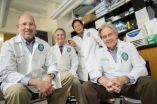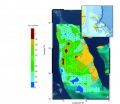(Press-News.org) The European Society for Medical Oncology (ESMO), the leading pan-European association representing medical oncology professionals, has expressed concern that the proposed EU General Data Protection Regulation [1] could make cancer research impossible and add a significant burden to both doctors and cancer patients.
The proposed wording of the regulation [2] stipulates 'explicit and specific patient consent', meaning that researchers would have to approach patients every single time research is planned in order to consult their data or use tissue samples stored for research purposes.
"Hope for patients facing a life-threatening disease like cancer is based on advances in research," said Kathy Oliver, Chair of the International Brain Tumour Alliance [3]. "And research progress requires access to a wide pool of patient data, even from patients who have since passed away and can no longer provide consent to allow for research that could save lives in the future."
"This could put a halt to many public health research efforts," said ESMO President Rolf A. Stahel. ESMO proposes that the text of the EU General Data Protection Regulation includes a 'one-time consent' for research, ensuring patients are aware of what they are consenting to --with the appropriate safeguards in place, and that they can withdraw their consent at any time. "Our proposal achieves the correct balance between the right to privacy and the right to health," the ESMO President continued. "It actually 'empowers' patients, allowing them to choose whether to donate their data and tissue for public health research, whose ultimate goal is to find cures."
"As a cancer patient, I cannot think of any reason not to allow access to my data to help other patients receive better care and contribute to advancing cancer research," noted Hans Keulen, a Dutch rare cancer patient from the Chordoma Foundation [4].
Paolo G. Casali, ESMO Public Policy Committee Chair, author of the official ESMO Position Paper on the risks of the new Data Protection Regulation [5], said: 'We understand the need for the EU to address data privacy concerns in many sectors, with the surge of risks brought about by the use of digital information, but its effect on public health research may have been unintentionally overlooked."
Population-based cancer registries, for example, storing information to monitor disease trends, are intrinsically incompatible with any requirement of individual consent: "If a patient is allowed not to consent use of his/her anonymised data for the registry, the data provided by that registry will be unrepresentative and can lead to incorrect conclusions for public health actions," noted Casali.
ESMO is in favour of the inclusion in the EU General Data Protection Regulation of the withdrawable 'one-time consent' concept [6] – already foreseen in the Clinical Trials Regulation [7] adopted by the European Union in 2014, which allows to use data already stored beyond the end and the specific scope of a trial, with the usual strict safeguards.
"We are calling upon the European Union to assure that all forms of public health research will survive and be able to function within the safeguards that are in place, without adding the nearly impossible administrative burden of re-consenting each patient, every time, for every single project, which could irreversibly slow down the accelerated pace that cancer research has gained over the past decades."
INFORMATION:
Notes to Editors
References
1. European Parliament's Legislative Resolution on the General Data Protection Regulation
2. http://www.europarl.europa.eu/sides/getDoc.do?type=TA&language=EN&reference=P7-TA-2014-0212
3. http://www.theibta.org/
4. http://www.chordomafoundation.org/
5. Annals of Oncology 25: 1458, 2014 doi:10.1093/annonc/mdu218 (http://annonc.oxfordjournals.org/lookup/doi/10.1093/annonc/mdu218)
6. http://www.esmo.org/Press-Office/Press-Releases/Medical-Research-Safeguarded-in-Europe
7. http://eur-lex.europa.eu/legal-content/EN/TXT/?uri=uriserv:OJ.L_.2014.158.01.0001.01.ENG
About the European Society for Medical Oncology
The European Society for Medical Oncology (ESMO) is the leading European professional organisation committed to advancing the specialty of medical oncology and promoting a multidisciplinary approach to cancer treatment and care.
ESMO's mission is to advance cancer care and cure through fostering and disseminating good science that leads to better medicine and determines best practice.
As a trusted organisation with 40 years of experience, ESMO serves its 8,000 members and the oncology community.
ESMO's scientific journal, Annals of Oncology, ranks among the top clinical oncology journals worldwide. ESMO events are the meeting place in Europe for medical oncologists to update their knowledge, to network and to exchange ideas.
To find out more about ESMO, please visit: http://www.esmo.org
Is Europe putting cancer research at risk?
ESMO concerned that the proposed EU General Data Protection Regulation could make cancer research impossible and add a significant burden to cancer patients
2014-07-25
ELSE PRESS RELEASES FROM THIS DATE:
Informed consent: False positives not a worry in lung cancer study
2014-07-25
PROVIDENCE, R.I. [Brown University] — The U.S. Preventive Services Task Force recently recommended computerized tomography (CT) lung screening for people at high risk for cancer, but a potential problem with CT is that many patients will have positive results on the screening test, only to be deemed cancer-free on further testing. Many policymakers have expressed concern that this high false-positive rate will cause patients to become needlessly upset. A new study of National Lung Screening Trial participant responses to false positive diagnoses, however, finds that those ...
Exposure to dim light at night may make breast cancers resistant to tamoxifen
2014-07-25
PHILADELPHIA — For rats bearing human breast tumors, exposure to dim light at night made the tumors resistant to the breast cancer drug tamoxifen, according to data published in Cancer Research, a journal of the American Association for Cancer Research. The negative effects of dim light exposure on tamoxifen treatment were overcome by giving rats a melatonin supplement during the night.
"Resistance to tamoxifen is a growing problem among patients with hormone receptor-positive breast cancer," said Steven M. Hill, PhD, professor of structural and cellular biology and the ...
Total darkness at night is key to success of breast cancer therapy -- Tulane study
2014-07-25
Exposure to light at night, which shuts off nighttime production of the hormone melatonin, renders breast cancer completely resistant to tamoxifen, a widely used breast cancer drug, says a new study by Tulane University School of Medicine cancer researchers. The study, "Circadian and Melatonin Disruption by Exposure to Light at Night Drives Intrinsic Resistance to Tamoxifen Therapy in Breast Cancer," published in the journal Cancer Research, is the first to show that melatonin is vital to the success of tamoxifen in treating breast cancer.
Principal investigators and ...
Zerenex™ (ferric citrate) long-term Phase 3 study results published in JASN
2014-07-25
New York, NY - July 24, 2014 -- Keryx Biopharmaceuticals, Inc. (Nasdaq:KERX) (the "Company") announced the publication of results from the long-term, randomized, active control Phase 3 study of Zerenex (ferric citrate), the Company's investigational oral ferric iron-based phosphate binder, for the treatment of hyperphosphatemia in patients with end-stage renal disease (ESRD) on dialysis. The PERFECTED study (PhosphatE binding and iRon delivery with FErric CiTrate in EsrD) was published online today in the Journal of the American Society of Nephrology (JASN).
This Phase ...
New research suggests Saharan dust is key to the formation of Bahamas' Great Bank
2014-07-25
MIAMI – A new study suggests that Saharan dust played a major role in the formation of the Bahamas islands. Researchers from the University of Miami (UM) Rosenstiel School of Marine and Atmospheric Science showed that iron-rich Saharan dust provides the nutrients necessary for specialized bacteria to produce the island chain's carbonate-based foundation.
UM Rosenstiel School Lewis G. Weeks Professor Peter Swart and colleagues analyzed the concentrations of two trace elements characteristic of atmospheric dust – iron and manganese – in 270 seafloor samples collected along ...
Overweight and obese preschoolers lose more weight when parent is also treated
2014-07-24
BUFFALO, N.Y. – Primary care treatment of overweight and obese preschoolers works better when treatment targets both parent and child compared to when only the child is targeted, according to research published this week in Pediatrics and conducted at the University at Buffalo and Women and Children's Hospital of Buffalo.
Children enrolled in this study were overweight or obese and had one parent who participated in the study who also was overweight or obese, according to body mass index (BMI) measurements, calculated based on height and weight.
During the course of the ...
NYSCF scientists one step closer to cell therapy for multiple sclerosis patients
2014-07-24
NEW YORK, NY (July 24, 2014) – Scientists at The New York Stem Cell Foundation (NYSCF) Research Institute are one step closer to creating a viable cell replacement therapy for multiple sclerosis from a patient's own cells.
For the first time, NYSCF scientists generated induced pluripotent stem (iPS) cells lines from skin samples of patients with primary progressive multiple sclerosis and further, they developed an accelerated protocol to induce these stem cells into becoming oligodendrocytes, the myelin-forming cells of the central nervous system implicated in multiple ...
Study indicates large raptors in Africa used for bushmeat
2014-07-24
Bushmeat, the use of native animal species for food or commercial food sale, has been heavily documented to be a significant factor in the decline of many species of primates and other mammals. However, a new study indicates that more than half of the species being consumed are birds, particularly large birds like raptors and hornbills.
"By surveying not only the meat made available for sale but the meat that is being eaten inside the forest by hunters and brought to villages for consumption, we noted a significant percentage attributed to bird species," said Bethan ...
New study draws links between wildlife loss and social conflicts
2014-07-24
Citing many sobering examples of how wildlife loss leads to conflict among people around the world, a new article co-authored by Wildlife Conservation Society (WCS) Health & Ecosystems: Analysis of Linkages (HEAL) Program Director Dr. Christopher Golden, calls for an interdisciplinary approach to tackle global biodiversity decline.
The harvest of wild animals directly supports about 15% of the world's people and provides protein for more than a billion of the world's poor. It should come as no surprise that today's unprecedented loss of wildlife, is bringing with it ...
Hubble finds 3 surprisingly dry exoplanets
2014-07-24
Astronomers using NASA's Hubble Space Telescope have gone looking for water vapor in the atmospheres of three planets orbiting stars similar to the sun -- and have come up nearly dry.
The three planets, known as HD 189733b, HD 209458b, and WASP-12b, are between 60 and 900 light-years away from Earth and were thought to be ideal candidates for detecting water vapor in their atmospheres because of their high temperatures where water turns into a measurable vapor.
These so-called "hot Jupiters" are so close to their star they have temperatures between 1,500 and 4,000 degrees ...
LAST 30 PRESS RELEASES:
New knowledge on heritability paves the way for better treatment of people with chronic inflammatory bowel disease
Under the Lens: Microbiologists Nicola Holden and Gil Domingue weigh in on the raw milk debate
Science reveals why you can’t resist a snack – even when you’re full
Kidney cancer study finds belzutifan plus pembrolizumab post-surgery helps patients at high risk for relapse stay cancer-free longer
Alkali cation effects in electrochemical carbon dioxide reduction
Test platforms for charging wireless cars now fit on a bench
$3 million NIH grant funds national study of Medicare Advantage’s benefit expansion into social supports
Amplified Sciences achieves CAP accreditation for cutting-edge diagnostic lab
Fred Hutch announces 12 recipients of the annual Harold M. Weintraub Graduate Student Award
Native forest litter helps rebuild soil life in post-mining landscapes
Mountain soils in arid regions may emit more greenhouse gas as climate shifts, new study finds
Pairing biochar with other soil amendments could unlock stronger gains in soil health
Why do we get a skip in our step when we’re happy? Thank dopamine
UC Irvine scientists uncover cellular mechanism behind muscle repair
Platform to map living brain noninvasively takes next big step
Stress-testing the Cascadia Subduction Zone reveals variability that could impact how earthquakes spread
We may be underestimating the true carbon cost of northern wildfires
Blood test predicts which bladder cancer patients may safely skip surgery
Kennesaw State's Vijay Anand honored as National Academy of Inventors Senior Member
Recovery from whaling reveals the role of age in Humpback reproduction
Can the canny tick help prevent disease like MS and cancer?
Newcomer children show lower rates of emergency department use for non‑urgent conditions, study finds
Cognitive and neuropsychiatric function in former American football players
From trash to climate tech: rubber gloves find new life as carbon capturers materials
A step towards needed treatments for hantaviruses in new molecular map
Boys are more motivated, while girls are more compassionate?
Study identifies opposing roles for IL6 and IL6R in long-term mortality
AI accurately spots medical disorder from privacy-conscious hand images
Transient Pauli blocking for broadband ultrafast optical switching
Political polarization can spur CO2 emissions, stymie climate action
[Press-News.org] Is Europe putting cancer research at risk?ESMO concerned that the proposed EU General Data Protection Regulation could make cancer research impossible and add a significant burden to cancer patients




